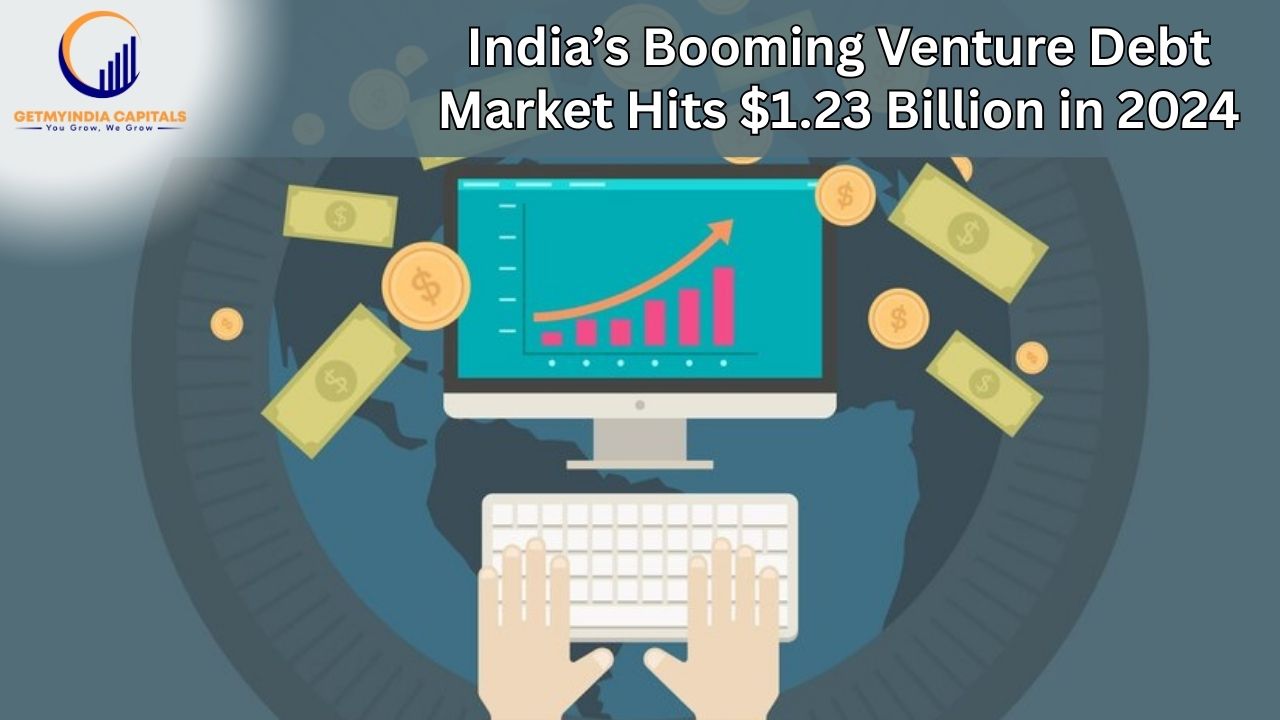Introduction
India’s venture debt market grew at a compound annual growth rate of 58 per cent during 2018 to 2024 to reach USD 1.23 billion last year, a Stride Ventures and Kearney report said on Wednesday. According to the Global Venture Debt Report 2025 released by Stride Ventures, the venture debt (VD) market was around USD 80 million in 2018.Bengaluru led the growth with 40 per cent of total venture debt deals followed by Delhi NCR and Mumbai.
Venture debt outpaces VC Growth
As venture ecosystems evolve globally, venture debt is gaining prominence as a viable financing option, allowing startups to secure essential growth capital while maintaining equity ownership.“Venture debt across the world is growing at a 14% CAGR, advancing from being a niche instrument to a mainstream asset class, empowering entrepreneurs to grow sustainably,” said Ishpreet Singh Gandhi, Founder & Managing Partner, Stride Ventures.
India is a key driver of this shift. The venture capital (VC) market in India rebounded in 2024, recording a 20% year-on-year increase to reach $12 billion. However, the venture debt segment has outperformed this growth, with deal count rising by 30% year-on-year to 238 transactions. This reflects a shift in how startups are approaching their capital requirements, increasingly favouring debt as a complement to equity financing.
India has emerged as a frontrunner in venture debt adoption by startups, driven by a combination of macroeconomic shifts, evolving founder preferences, and greater institutional participation,” said Apoorva Sharma, Managing Partner, Stride Ventures. “As equity capital becomes more selective, venture debt is playing a pivotal role in bridging funding gaps while empowering founders to retain strategic control.
Key Sectors Driving the Surge in India’s Venture Debt Market
Fintech, consumer tech, and cleantech emerged as the top three sectors by deal value in 2024. Fintech led the space with $445 million across 49 deals, followed by consumer tech at $294 million across 81 deals. Cleantech, a rapidly growing sector, secured $202 million across 22 deals.Key transactions included Bluestone ($61 million in Series G), Infra.Market ($42 million in Series D), Ather Energy ($47 million in Series E), and Money View ($39 million in Series E), according to the report.
“Venture debt’s rise in India reflects a maturing startup ecosystem where capital efficiency is critical. Its growing adoption by LPs and VCs not only underscores a deeper financial sophistication but also highlights untapped potential in markets for this asset class,” said Manish Mathur, Senior Partner, Kearney.
Mathur also noted that while venture debt was once primarily a tool for runway extension, it is now driving pre-IPO readiness and strategic scaling, offering founders a way to preserve equity while fuelling growth.
Changing Perceptions
Historically, venture debt was seen as a secondary financing tool for most startups, but it is now being widely adopted for multiple use cases. The report highlights that 52% of venture debt funds are used for working capital, followed by growth financing and runway extension at 44% each. Additionally, 41% of founders now see venture debt as a tool for pre-IPO bridge financing, while 37% use it for inventory and capital expenditure (CAPEX) financing.
Despite its rapid growth, venture debt remains underutilised in many markets, presenting significant opportunities for further development. The next phase of venture debt growth will be defined by how effectively ecosystems across the world embrace and integrate it as a mainstream funding instrument,” said Sebastian Drescher, Partner, Kearney.
Venture Debt Gains Momentum as Regulatory Changes Drive Capital Allocation Shift
Government policies are also playing a role in fostering the venture debt ecosystem. The Finance Minister’s 2025 announcement of a ₹20,000 crore ($2.4 billion) fund for deep-tech startups is expected to increase venture debt viability in capital-intensive sectors. Additionally, the abolition of the angel tax, effective April 2025, is set to boost investor confidence and accelerate debt adoption.
Even Gujarat International Finance Tec-City (GIFT City) has played a crucial role in attracting global investors. By 2024, it was home to over 700 entities, including 31 banks, more than 80 capital market intermediaries, 37 insurance and reinsurance firms, 55 fintech companies, and over 140 alternative investment funds (AIFs).
With this regulatory push, limited partners (LPs) are increasingly treating venture debt as a mainstream asset class, with 54% of Indian LPs acknowledging it as critical for balanced capital allocation. Compared to their global counterparts, Indian LPs favour hybrid structures that align with their risk-return expectations. Similarly, venture capitalists (VCs) are endorsing debt as a means to extend runway, preserve ownership, and optimise capital efficiency.
Conclusion
India’s venture debt market has seen remarkable growth, with projections to reach $1.23 billion by 2024, outpacing traditional venture capital in terms of expansion. This surge reflects changing perceptions, as venture debt is increasingly viewed as a mainstream financing tool, particularly for growth-stage startups. Government policies, such as the ₹20,000 crore fund for deep-tech startups and the abolition of angel tax, further support this shift, boosting investor confidence and encouraging adoption. Moreover, global financial hubs like GIFT City are playing a key role in attracting investors. As venture debt gains traction across sectors like fintech, SaaS, and deep-tech, it offers startups a flexible, non-dilutive alternative to equity funding. The future of venture debt will depend on continued regulatory support and ecosystem integration, ensuring it becomes a key pillar in the funding landscape for India’s growing startup ecosystem.
GetMyIndia.com RaysVeda.com GetMyStartup.com LawCanal.com ABHAYRAY.COM ZinCob.com

